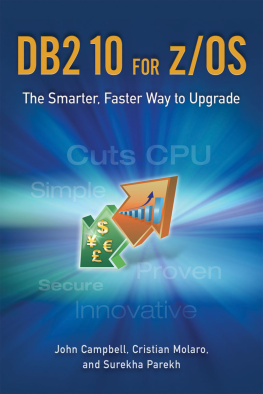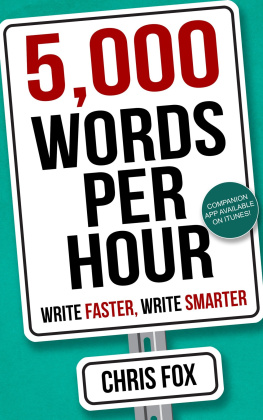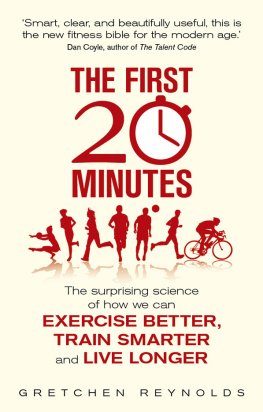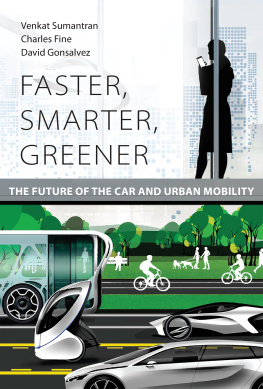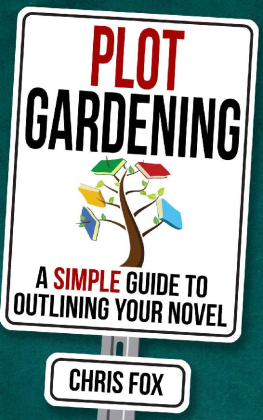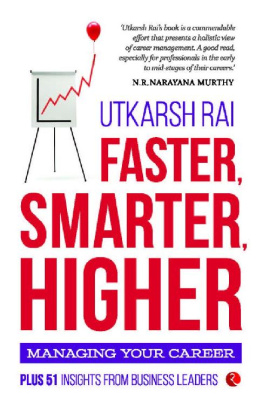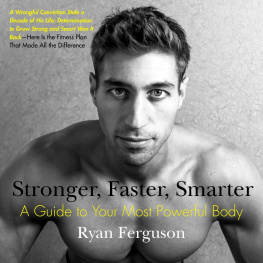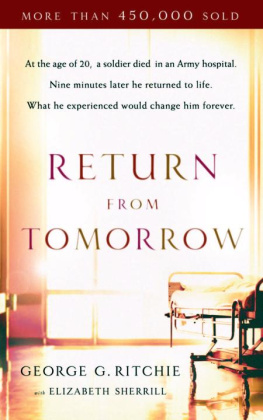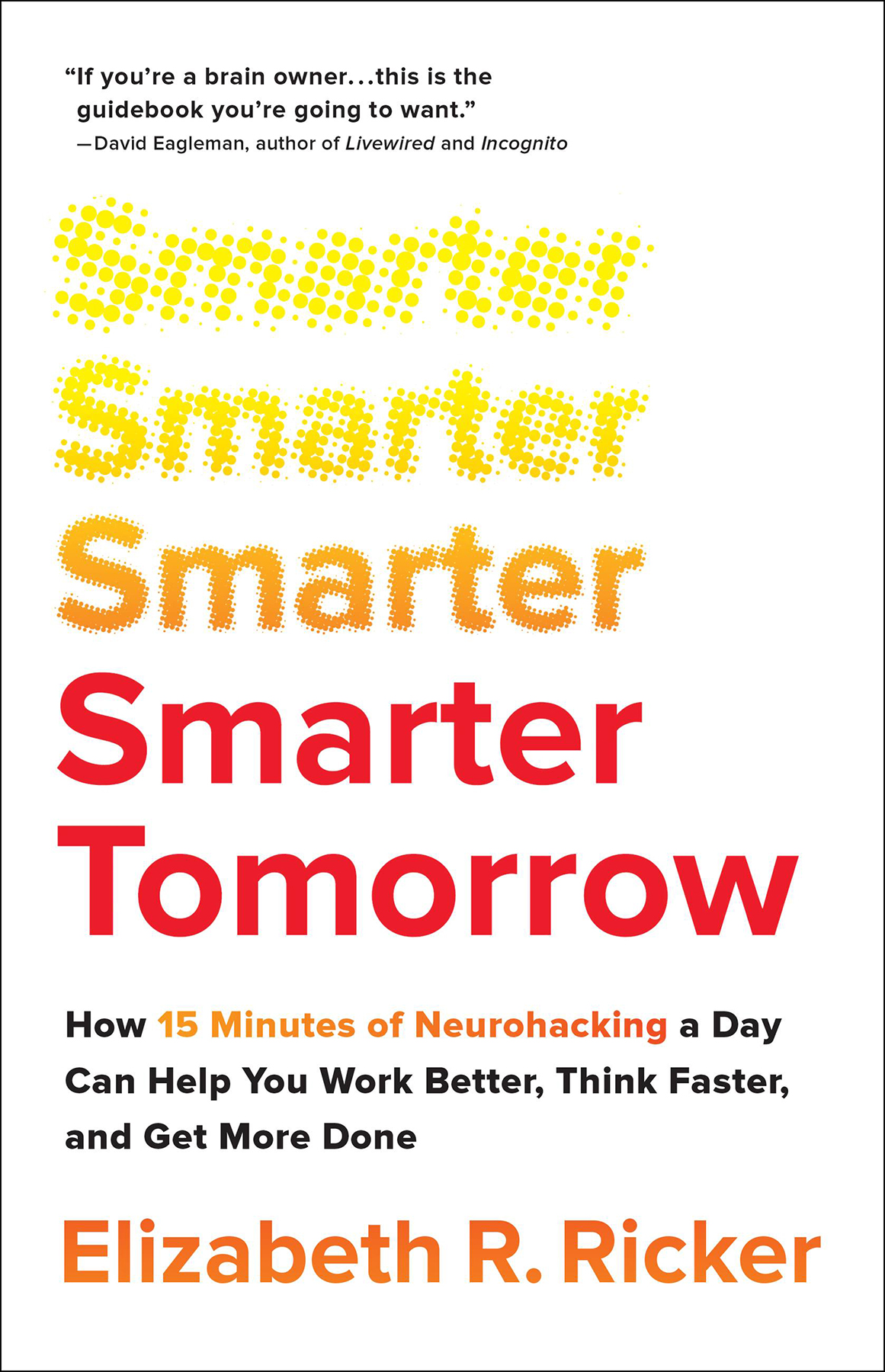
Copyright 2021 by Elizabeth R. Ricker
Cover design by David Gee
Cover 2021 by Hachette Book Group, Inc.
Hachette Book Group supports the right to free expression and the value of copyright. The purpose of copyright is to encourage writers and artists to produce the creative works that enrich our culture.
The scanning, uploading, and distribution of this book without permission is a theft of the authors intellectual property. If you would like permission to use material from the book (other than for review purposes), please contact permissions@hbgusa.com. Thank you for your support of the authors rights.
Little, Brown Spark
Hachette Book Group
1290 Avenue of the Americas, New York, NY 10104
littlebrownspark.com
twitter.com/lbsparkbooks
facebook.com/littlebrownspark
Instagram.com/littlebrownspark
First ebook edition: August 2021
Little, Brown Spark is an imprint of Little, Brown and Company, a division of Hachette Book Group, Inc. The Little, Brown Spark name and logo are trademarks of Hachette Book Group, Inc.
The publisher is not responsible for websites (or their content) that are not owned by the publisher.
The Hachette Speakers Bureau provides a wide range of authors for speaking events. To find out more, go to hachettespeakersbureau.com or call (866) 376-6591.
Illustration credits can be found in the Notes at the back of the book.
ISBN 978-0-316-53508-3
E3-20210720-JV-NF-ORI
To my familyVarun, Mom and Dad, Lindsey, Latha and GP, and our newest member, MunchkinI love each of you and all of you so much.
To those of us who, at one point or another, worry that we must choose between being true to ourselves and being successful in the world as it is, I hope this book provides tools to emerge from that struggle at once victorious and at peace.
The material in this book is for informational purposes only. It does not constitute, and is not intended to substitute for, medical advice or to diagnose, treat, cure, or prevent any health problem or condition. No action should be taken solely on the information in this book. Always consult your physician or qualified healthcare professional on any matters regarding your health and before adopting any suggestions or following any recommendations in this book or drawing inferences from it. The author and publisher specifically disclaim all responsibility for any liability, loss, injury, damage, or other adverse effects that may result, directly or indirectly, from the use or application of information in this book.
Mention of specific companies, organizations, or authorities in this book does not imply endorsement by the author or publisher.
Where dialogue appears, the intention was to re-create the essence of conversations rather than verbatim quotes. This is a work of nonfiction. Dialogue was, in some cases, created for the purposes of entertainment. Names and identifying characteristics of some individuals have been changed.
Facts Matter: A Note on Notes
Throughout the book, youll see little numbers perched above the words in many, many sentences. These numbers indicate that there was a specific source, usually a peer-reviewed scholarly research paper, that I was referring to when I made a particular statement. If youre curious about the source, just flip to the Notes section at the end of the book. There youll find the sources listed in the order they appear, organized by chapter. Feel free to look up these sources and use the index; these are great ways to further explore any topic in the book.
A big thanks is owed to my science fact-checkers and beta readers. This team of more than a dozen neuroscience graduate students, professors, undergraduates, and research professionals hailed from Google, Harvard, Johns Hopkins, McGill, New York University, uOttawa Brain and Mind Research Institute, Stanford, University of CaliforniaBerkeley, University of Chicago, University of CaliforniaDavis, and University of CaliforniaLos Angeles. They pored over the manuscript and hunted for mistakes. If you see facts in the book that are wrong, its probably because I didnt heed good advice from one of them. If something looks off to you, just shoot me a message at ericker.com.
The future is already hereits just not evenly distributed.
W ILLIAM G IBSON
Time Investment: 11 minutes
Goal: To understand what you will and wont get out of reading this book
One question has driven me from city to city. It has pushed me to hunt down experts across the world. It has motivated me to scour hundreds of research papers. It has compelled me to jump from working in neuroscience research to technology startups and back to researchbut research of a far more personal type. Finally, it has fueled my testing of dozensno, lets be honest, hundredsof apps, wearables, devices, and substances on myself. If I could answer this question for myself, I figured, I could answer it for others, too:
How can I upgrade my brain?
Not how can my doctor upgrade it. Not my teacher. Not my boss. Not my family or friends. How can I do it?
What does a brain upgrade mean? For me, it means getting consistent access to the best version of myself, not the one who slouches up on an average day. I want the version who learns fast, who recalls details that others forget, who juggles daily responsibilities without dropping anything important, who says just the right thing to make a friend feel better. The version of me who is bold, reliable, kindand gets shit done.
Science fiction shows us what a dramatic mental upgrade could look like. With the help of a pill, a man becomes a financial wizard in weeks. With neural implants, a woman masters helicopter piloting in seconds. Other stories describe flawless memory, effortless language learning, and boundless creativity.
What if it didnt have to remain fiction, though? Even everyday upgrades could be life-altering: What if we didnt forget someones name 10 seconds after meeting them, didnt snap at our significant others when they interrupted us (sorry, honey!), didnt click uncontrollably from silly cat video to silly cat video when faced with a deadline? What if we displayed monk-like calm when our siblings or toxic coworkers tried to provoke us? In short, what if we could tap into our better, smarter selves, not just some of the time but most of the time?
Back to the Beginning
Did your school report card include phrases like seems bright but is not working to her full potential? If so, my elementary school days might sound familiar to you. One day, my teacher made the following announcement to the class: Elizabeth is going to a special tutor because she does not know how to read like the rest of you. My cheeks burning, I toyed with the idea of running away rather than climbing the steps to the reading tutors office. After a few minutes with Ms. Lecto, however, two things became clear. First, she didnt think I was a hopeless case. Second, she both challenged me and trusted me to progress at my own pace. With my previous teachers, I had daydreamed and doodled constantly. With Ms. Lecto, my brain finally turned on.
With her help, I went from being one of the worst readers in my grade midway through the year to fully caught up by summer break. By the following year, I was reading and writing above grade level. A few years later, I was nearly unrecognizable. Instead of being the kid who doodled through class every day, I was earning top grades and winning writing competitions. Later, I earned one degree from MIT and another from Harvard.



